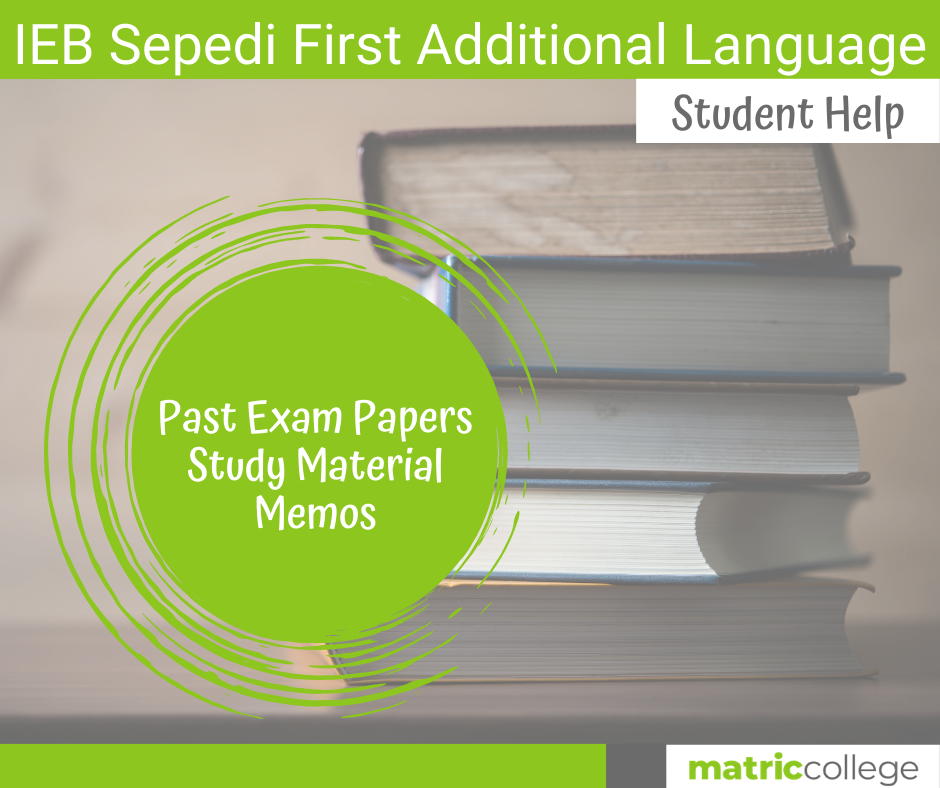IEB Sepedi First Additional Language- Past Papers, Memos, Marking Guidelines
Date Published: October 29, 2020

IEB Sepedi, the first additional language, is a popular subject in the IEB schooling system. As a first additional language, Sepedi requires a lot of work in terms or rules, literature and reading.
Matric College put together this cheat sheet to help you pass your IEB Sepedi FAL exam with flying colours.
Past Papers
Past papers are a great way to practise your language skills before the exam. If you need to practise your literature and language rules, past papers are the best way to go! Poetry and its rules can be extra tricky! But the more you practise, the better you get!
Past papers are also a great way for you to see which learning areas you’re good at and which need work.
Here are the IEB Sepedi FAL past papers from 2015-2019.
Marking Guidelines
Marking guidelines are a great way for you to get a few extra marks! If you know what the examiner expects in an answer, you might just be able to get that distinction.
Marking guidelines also help you understand which questions need more work and which ones require short, concise answers. That way you won’t waste time on questions that need shorter answers.
Here are the IEB Sepedi FAL past papers from 2015-2019.
Tips and tricks for passing IEB Sepedi FAL
Knowing where to start studying can be tricky. Here are some tips and tricks for passing your exam:
- Know your literature: Many language subjects often require you to answer questions about the literature that forms part of your syllabus. Make sure you know your course work before entering the exam because many of the questions are based on this! Try websites like SparkNotes to help you understand the literature.
- Learn the rules: Language is all about rules. Make sure to know your rules well before the exam. This includes poetry, grammar and comprehension. Try practising past papers to get used to applying the rules in practical situations.
- Try a study group: Study groups are a great way for you to learn topics that you might not have known beforehand. It’s also a great opportunity for you to discuss the coursework and literature to get a better understanding of it.
- Get help from a different teacher: Teachers each have their way of explaining the coursework. A different teacher might explain things in a way that is easier for you to understand. Try getting a tutor or learning from a teacher on youtube.
Author: Andrea Frisby
